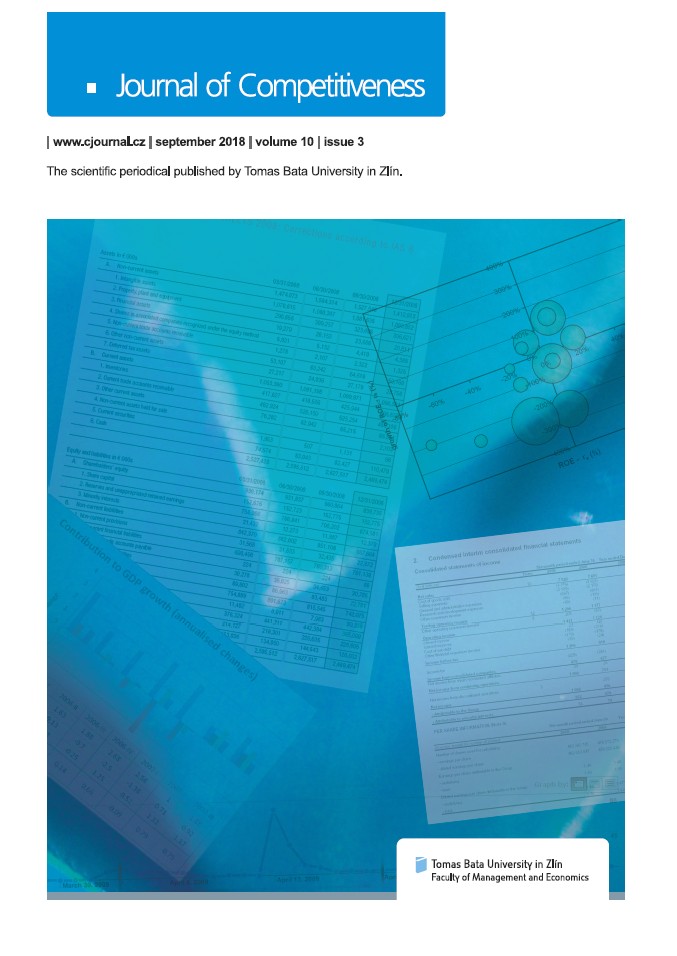Study of the Differences in the Perception of the Use of the Principles of Corporate Social Responsibility in Micro, Small and Medium-Sized Enterprises in the V4 Countries
IF 4.4
1区 管理学
Q2 BUSINESS
引用次数: 15
Abstract
The aim of the study was to examine the differences in the perception of the use of selected principles by CSR managers and owners of Micro, Small and Medium-sized Enterprises (MSMEs) in the V4 countries. The results of our research show that CSR strategies are most used by entrepreneurs and managers of MSMEs in Hungary, Poland and Slovakia. They are the least used in the Czech Republic. The sectoral comparison within the V4 countries highlighted interesting findings. When considering the moral and ethical implications of decision-making, no significant differences were found between the sectors. Differences were found in the perception of the CSR concept and its use in business. The CSR concept was mostly used in tourism and agriculture, to a lesser extent in construction, retail, manufacturing and services. Managers and entrepreneurs understand the link between CSR and gaining reputation and business opportunities and that CSR helps build a competitive advantage. The size of the company affects whether the company can be classified as CSR-oriented. Compared to medium-sized enterprises, micro-enterprises are 45% less likely and small enterprises are 33.5% less likely to be perceived as CSR-oriented. Compared to companies from Slovakia, companies in the Czech Republic are 41% less likely to be perceived as CSR-oriented. Hungarian companies are 70% more likely to be perceived as CSR-oriented compared to companies from Slovakia. Companies run by women are more inclined to apply CSR principles than men.V4国家中小微企业对企业社会责任原则运用认知差异研究
本研究的目的是检验V4国家的企业社会责任管理者和微型、小型和中型企业(MSME)所有者对使用选定原则的认知差异。我们的研究结果表明,匈牙利、波兰和斯洛伐克的中小微企业的企业家和管理者最常使用企业社会责任战略。它们是捷克共和国使用最少的。V4国家内部的部门比较突出了有趣的发现。在考虑决策的道德和伦理影响时,各部门之间没有发现显著差异。在对企业社会责任概念的理解及其在商业中的应用方面存在差异。企业社会责任概念主要用于旅游业和农业,较少用于建筑、零售、制造和服务业。管理者和企业家了解企业社会责任与获得声誉和商业机会之间的联系,以及企业社会责任有助于建立竞争优势。公司的规模影响着公司是否可以被归类为以企业社会责任为导向。与中型企业相比,微型企业被认为是以企业社会责任为导向的可能性低45%,小型企业则低33.5%。与斯洛伐克的公司相比,捷克共和国的公司被认为以企业社会责任为导向的可能性要低41%。与斯洛伐克公司相比,匈牙利公司被认为是以企业社会责任为导向的可能性高出70%。女性经营的公司比男性更倾向于应用企业社会责任原则。
本文章由计算机程序翻译,如有差异,请以英文原文为准。
求助全文
约1分钟内获得全文
求助全文
来源期刊

Journal of Competitiveness
Multiple-
CiteScore
11.30
自引率
2.70%
发文量
33
审稿时长
12 weeks
期刊介绍:
The Journal of Competitiveness, a scientific periodical published by the Faculty of Management and Economics of Tomas Bata University in Zlín in collaboration with publishing partners, presents the findings of basic and applied economic research conducted by both domestic and international scholars in the English language.
Focusing on economics, finance, and management, the Journal of Competitiveness is dedicated to publishing original scientific articles.
Published four times a year in both print and electronic formats, the journal follows a rigorous peer-review process with each contribution reviewed by two independent reviewers. Only scientific articles are considered for publication, while other types of papers such as informative articles, editorial materials, corrections, abstracts, or résumés are not included.
 求助内容:
求助内容: 应助结果提醒方式:
应助结果提醒方式:


